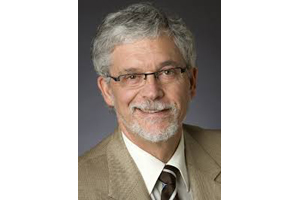Local News
Noted Winnipeg doctor Brent Schacter recognized for leading role in developing standardized testing for technologists in new research sub-specialty

By MYRON LOVE
In a lengthy career, cancer specialist Dr. Brent Schacter has always been a leader in expanding the boundaries of medical research and preventive medicine.
As noted in Eva Wiseman’s “Healing Loves: A Century of Manitoba Jewish Physicians”, during his tenure as president and CEO of CancerCare Manitoba, Schacter initiated a breast cancer screening program for Manitoba, strengthened clinical epidemiology and health services research, implemented an electronic medical records system through the Community Cancer Program Network, and oversaw the design and construction of the new CancerCare Building on McDermot.
Nationally, in more recent years, he has been CEO of the Canadian Association of Provincial Cancer Agencies and the Canadian Tumour Repository Network, – the latter, he explains, a network of biobanks across Canada.
Biobanks are coĺlections of biological samples and data for research purposes, in particular for the study of complex diseases. Although retired from teaching at the University of Manitoba Rady Faculty of Medicine for four years and from clinical practice since June 2018, Schacter has continued to be involved in the area of biobanking – specifically as part of an International Organization for Standardization (ISO) writing group which has created a new global standard and benchmark for biobanking ( ISO 20387) and as part of the joint ISBER (International Society for Biological and Environmental Repositories)/ASCP BOC (American Society of Clinical Pathology Board of Certification). team that collaborated to produce the QBRS (Qualification in Biorepository Science) exam.
This spring, Schacter was honoured with the ISBER Special Services Award for 2020 for his leadership role in the development of the QBRS Examination.
“I am very pleased that ISBER has chosen to honour me for my efforts in this initiative,” he says.
Biobanking, he explains, is still a relatively new area of biomedical research. The field involves the extraction and study of human tissue in order to detect abnormalities at the molecular level and in the development of designer drugs to alleviate disease resulting from these abnormalities.
“For research purposes,” he observes, “we require standardized methods to ensure that the results we produce are valid. Because Biobanking is only a few years old, until now, we have not had those standardized measures in the training of highly-skilled technologists. Until now, different medical labs have trained their own staff members according to their own methods.”
Schacter reports that the team that he was working with completed the standardized course in early January and posted it online worldwide. “The course serves as a benchmark qualification for the skills required to direct, manage and maintain a biobank for tissues required in biomedical research and animal or environmental research,” he explains. “It is a new instrument to improve the quality of biobanking, which is essential for progress in biomedicine and science generally.”
He adds that the first five applicants– three in the United States and two in Hong Kong – successfully passed the exam in April.
(QBRS certificate holders are required to revalidate their standing every three years through continuous education.)
The ISBER award, he notes, was supposed to have been presented in April at the AGM scheduled for Anaheim but, due to the pandemic, the conference was changed to a virtual affair in May. Schacter expects that the award will be mailed out to him.
He was previously honoured seven years ago by the Canadian Friends of the Hebrew University. Schacter is a past president of the Winnipeg chapter and is still a member of the national board. He played a leading role in establishing a collaborative research project between the Hebrew University and the University of Manitoba investigating Fetal Alchohol Spectrum Disorder (FASD).
Local News
Thank you to the community from the Chesed Shel Emes

We’re delighted to share a major milestone in our Capital Campaign, “Building on our Tradition.” Launched in November 2018, this campaign aimed to replace our outdated facility with a modern space tailored to our unique needs. Our new building is designed with ritual at its core, featuring ample preparation space, Shomer space, and storage, creating a warm and welcoming environment for our community during times of need.
We’re grateful to the nearly 1,000 generous donors who contributed over $4 million towards our new facility. A $750,000 mortgage will be retired in November 2025, completing this monumental project in just seven years.
We’re also thrilled to announce that our Chesed Shel Emes Endowment Fund has grown tenfold, from $15,000 to $150,000, thanks to you, the Jewish Foundation of Manitoba’s FundMatch program, and Million Dollar Match initiative in 2024. Our fund helps ensure that everyone can have a dignified Jewish funeral regardless of financial need.
As we look to the future, our goal remains to ensure the Chevra Kadisha continues to serve our community for generations to come. Our focus now shifts to replenishing our savings account and growing our JFM Endowment fund.
We’re deeply grateful for your support over the past several years.
It’s our privilege to serve our community with care and compassion.
With sincere appreciation,
Campaign cabinet: Hillel Kravetsky, Gerry Pritchard, Stuart Pudavick,
Jack Solomon, and Rena Boroditsky
Murray S. Greenfield, President
Local News
Winnipeg Beach Synagogue about to celebrate 75th anniversary

By BERNIE BELLAN (July 13) In 1950 a group of cottage owners at Winnipeg Beach took it upon themselves to relocate a one-room schoolhouse that was in the Beausejour area to Winnipeg Beach where it became the beach synagogue at the corner of Hazel and Grove.
There it stayed until 1998 when it was moved to its current location at Camp Massad.
On August 2nd members of the synagogue will be holding a 75th anniversary celebration.

As part of the celebration anyone who is a descendant or relative of any of the original members of the first executive committee (as seen in the photo here) is invited to attend the synagogue that morning.
If you are a relative please contact Abe Borzykowski at wpgbeachshule@shaw.ca or aborzykowski@shaw.ca to let Abe know you might be attending or for more information about the 75th anniversary celebration.
We will soon be publishing a story about the history of the beach synagogue, which is something I’ve been writing about for over 25 years.
Local News
Vickar Family cuts ribbon on new Tova Vickar and Family Childcare Centre

By MYRON LOVE In the words of Larry Vickar, the Shaarey Zedek’s successful Dor V’ Dor Campaign “is not only a renewal of the synagogue but truly a renewal movement of Jewish life in our community.”An integral part of that renewal movement was the creation of a daycare centre within the expanded synagogue. On Monday, June 23, Larry and Tova Vickar cut the ribbon, thereby officially opening the Tova Vickar and Family Childcare Centre in the presence of 100 of their family members, friends and other supporters of the project.
The short program preceding the morning ribbon-cutting began with a continental breakfast followed by a welcome by both Fanny Levy, Shaarey Zedek’s Board President, and Executive Director Dr. Rena Secter Elbaze. In Elbaze’s remarks, she noted that Larry and Tova wanted their family (including son Stephen and family, who flew in from Florida) and friends at the event to celebrate the opening of the Tova Vickar and Family Childcare Centre, “not because of the accolades, but because, as Larry put it, he hopes that their investment in the congregation will inspire others to do the same.”
“When Larry and I spoke about what this gift meant to him and the message he wanted people to take away,” she continued, “I couldn’t help but connect it to the teachings of Reb Zalman Schachter-Shalomi whose book – Age-ing to Sage-ing – changes the whole way we look at the concept of ageing and basing it on our ancestral teachings.”
She explained that his concept of “Sage-ing” is based on three key ideas – Discover your meaning and purpose; accept our mortality and think about the legacy you want to leave.
“Larry spoke about these exact concepts when we met,” she said.
Elbaze also noted the presence of Shaarey Zedek’s newly-arrived senior Rabbi Carnie Rose, former Rabbi Alan Green, and area MLAs Mike Moroz and Carla Compton.
Larry Vickar expressed his great appreciation for all those in attendance. “Tova and I are deeply moved to stand here with you today for this important milestone in our community”, he said. “We are grateful to be surrounded by all of you, the people we care about, our family and friends… you who have touched our lives and played some part in our journey.”
